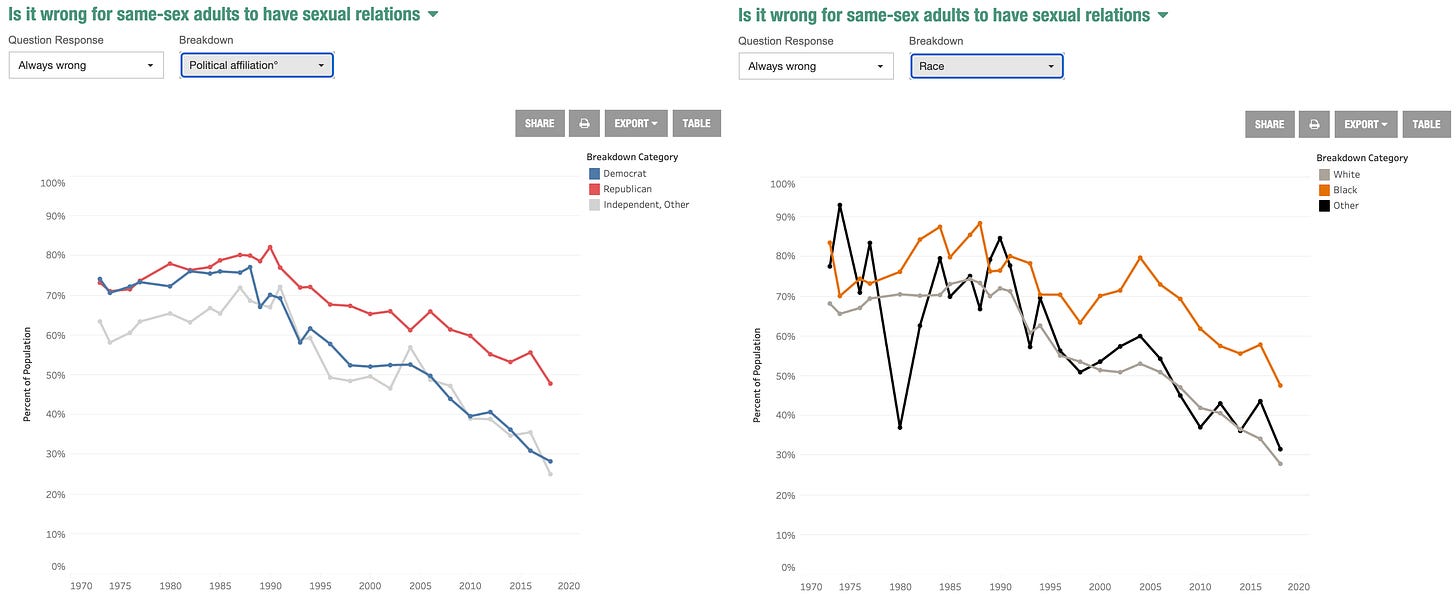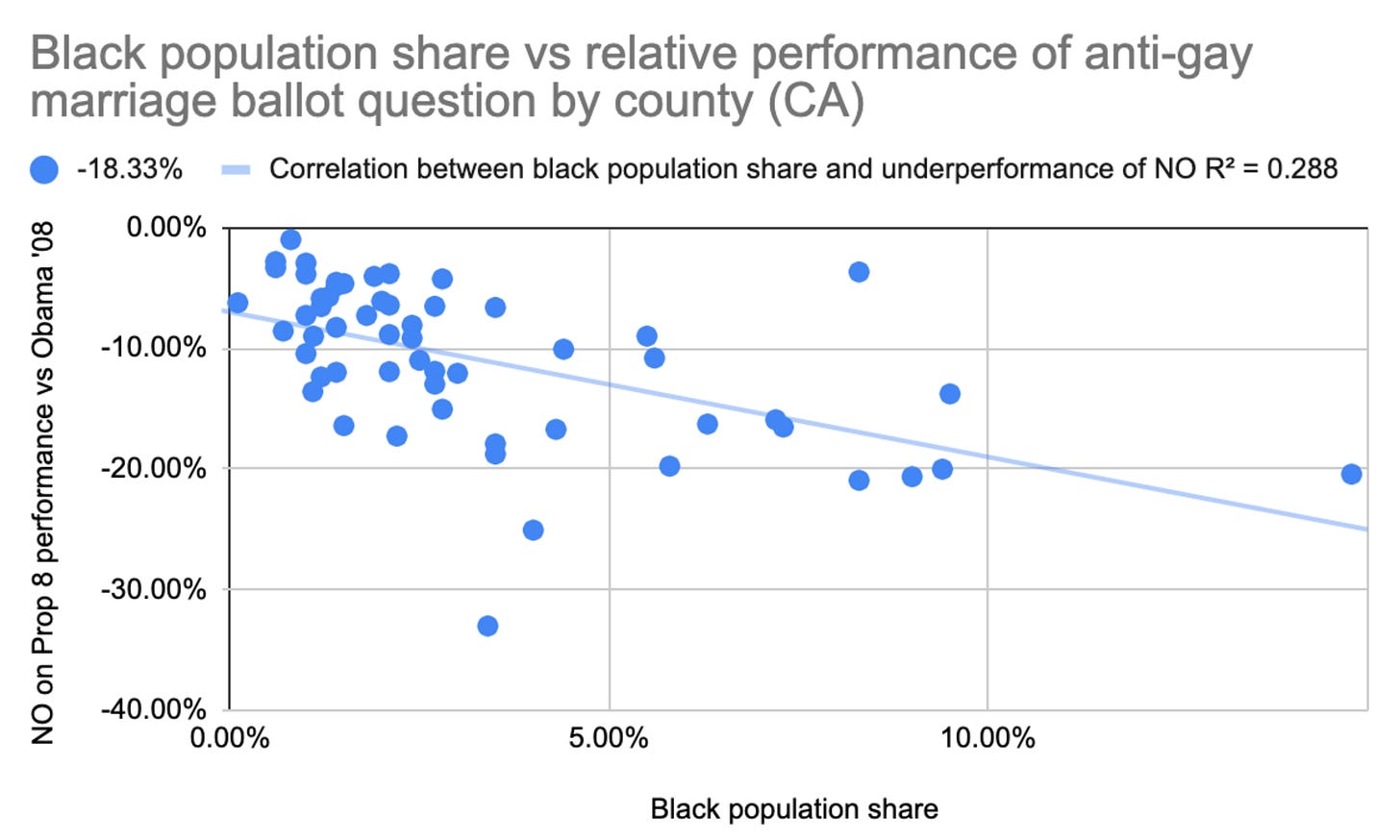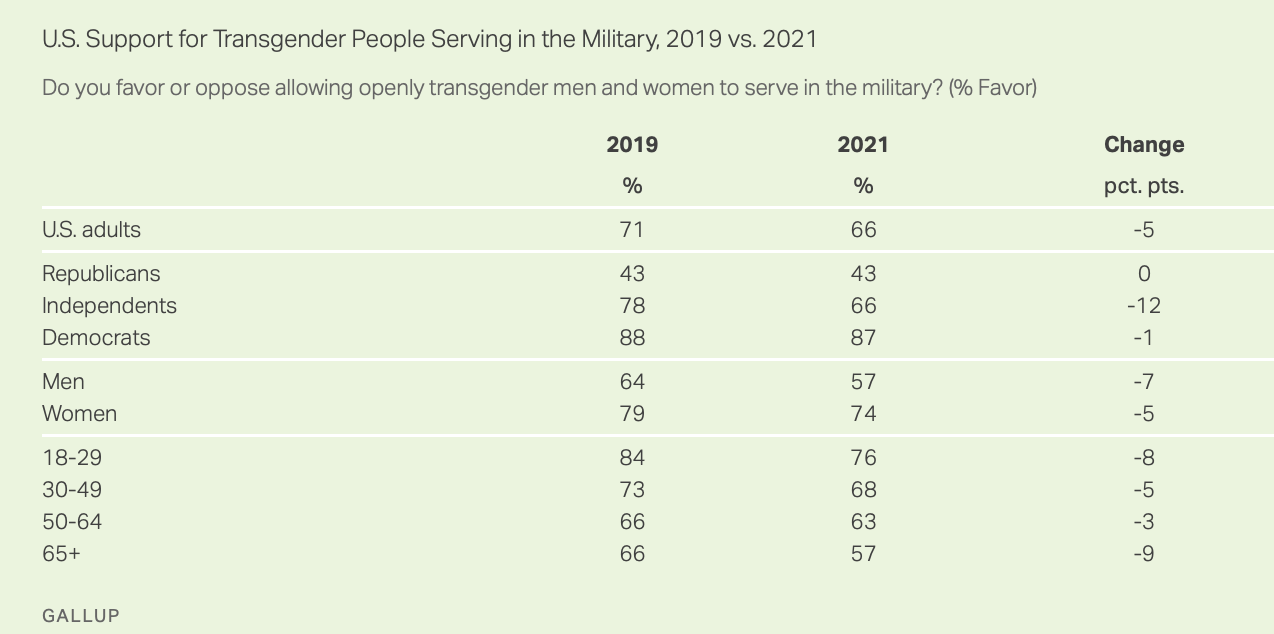Dave Chappelle and the still-doomed politics of shunning
You can't pretend widely held views don't exist
I am not a fan of stand-up comedy as a genre, but out of loyalty to you the readers, I watched “The Closer” on Netflix so I could participate in the Dave Chappelle Discourse.
All things considered, it’s a useful case study in the value of checking things out for yourself rather than just reading takes. I don’t know that a person outraged about Chappelle’s jokes about trans people would feel better about them knowing that the special also oozes contempt for working-class white people and tars all police officers as trigger-happy racists, but it does create a somewhat different context. Most of this stuff, to be clear, is also kinda funny. There’s a really witless and homophobic joke about Mike Pence being gay that’s the kind of thing I like to think I outgrew in eleventh grade but that made me chuckle — Chappelle is a very good performer. But again, the fact that one of the most straightforwardly homophobic things in the special is just using “Mike Pence is gay” as a diss on Mike Pence is a sign that this is something other than right-wing politics.
Similarly, I actually think the toughest political hit in the whole special is two brief jokes about “space Jews” that haven’t gotten much attention outside of the Jewish press. The joke is basically that Israel is equivalent to a freed slave who turns around and enslaves other people (to make Zionists everywhere mad), but he then also attributes this to “Jews” (to make Israel-critical Jewish people mad). This is one that I, personally, was kind of upset about. Though, again, to be clear — I laughed at the joke. Chappelle is good at his job.
But it’s bad politics. I would not suggest nominating Dave Chappelle to run for Congress, wouldn’t ask him to speak at a national political convention, and in general would be pretty alarmed by anyone getting their political views straight from Chappelle.
A bit can be funny and have sound politics (I think John Oliver tries hard to do this, and so did Al Franken during the years before he decided to run for office), but fundamentally “making people laugh” and “expressing ideas that make sense” are pretty different. I usually find standup routines to be tedious even when they’re funny (there’s no story, no stakes) so I don’t think I’m going to watch a bunch more Chappelle specials. But if I was hanging out with someone who did want to watch one, I bet I’d laugh and have an okay time. The political views expressed are still not great, but who cares?
Well, obviously a lot of people — especially transgender people — do care, and they want this routine labeled harmful and taken down off Netflix. And to be clear, I am not asking anyone to enjoy him or praise him or watch his specials. These people at the Economist hailing him as a great hero for daring to piss off trans activists are being ridiculous.
But I’ll say roughly the same thing I said in “Joe Rogan and the Doomed Politics of Shunning” — I don’t think trying to arm-twist people into shunning everyone who expresses a widely-held viewpoint that trans activists disagree with is going to accomplish anything useful. Unlike a standup routine, this is political action, and it deserves to be judged based on whether or not it makes sense as political action. And the answer is that it does not; it serves to narrow the progressive coalition and make everything — including tangible progress on trans rights — harder.
Black Democrats are more conservative on LGBT issues
Back when Pete Buttigieg was running for president and was struggling to secure African American support, his campaign sometimes hinted that high levels of Black homophobia were partially to blame.
Charles Blow wrote a response denouncing that as a “homophobic trope,” and Jonathan Capehart called it an “ugly lie.” But I looked up the numbers at the time in the General Social Survey, and they show two things pretty clearly:
Republicans are much more likely than Democrats to say that it is “always wrong” for two same-sex adults to have sexual relations.
Black people are much more likely than white people to say that it is “always wrong” for two same-sex adults to have sexual relations.
Since white people are much more likely than Black people to be Republicans, I think it’s pretty clear that among Democrats who are homophobic, a very large share is Black, and that probably does explain something about Buttigieg’s struggles.
My point here is that there are probably a lot of Dave Chappelles out there voting for Democratic Party candidates, and you need to think about the implications of that before you decide something is worth throwing people out of the coalition.
You can see the same thing in ballot referenda about same-sex marriage. Here’s a chart showing county-level underperformance of the pro-equality side relative to Obama’s vote share in Maryland. The pro-Obama/anti-equality crossover voters are most prevalent in counties with more Black residents.
You see the same thing in California.
And you see it in Florida as well.
I think that if you framed this in terms of some basic correlates, it would be uncontroversial to say that Black Democrats are more religiously observant and more working-class than white Democrats. But that means they have certain things in common with religiously observant, less-educated white people, including relatively conservative ideas about gender roles. The difference is that many Black people with those views vote for Democrats, which is good for LGBT causes.
Elite coalition politics works
The Democratic Party is very good at elite-level coalition politics and logrolling.
When the Equality Act came up for a vote in the House, every single member of the Congressional Black Caucus supported it. Barack Obama was the first president to support marriage equality, and (in some ways more importantly) even when he was pretending not to support it, he was appointing the Supreme Court justices who would rule in its favor. I’ve often been critical of progressive movement leaders, but I think this is an area where progressive politics has proven itself to be highly functional.
LGBT groups tend to support racial justice causes, and Black elected officials reliably support LGBT rights legislation, even when it’s not necessarily popular with their base. The votes and financial resources of both communities are necessary to win races and wield power, and winning races and wielding power are mutually beneficial.
Groups that are in the numerical minority are better off if they can work together, and that means largely working together at an elite level. This is part of the beauty of representative government. Black House members exhibit a broad range of personal and political styles, but whether they’re from the suburbs of Dallas, central LA, or rural Mississippi, they are all 100% supportive of LGBT rights causes. If you peek under the hood at mass opinion, you see a lot more Dave Chappelles. But the Chappelles vote for the members who vote for the Equality Act.
Indeed, I think it’s noteworthy that the one time Chappelle actually addresses a specific piece of trans-related legislation — the North Carolina bathroom bill — he says it’s bad and takes the pro-trans view. He also says a bunch of other stuff that is genuinely hurtful and against activist preferences. But on the concrete policy topic, he says the bill is bad.
Trans rights are a mixed bag in public opinion
Just because an idea is unpopular doesn’t mean that it’s wrong, and there is absolutely nothing wrong with people fighting for unpopular causes.
But I do think that in politics you need to know the difference between when you’re fighting for an unpopular cause and when you’re trying to spike the football with a popular one. The progressive internet often makes it seem as if trans activist claims are commonly held views being resisted by only a small number of extreme conservatives.
In truth, it’s very much a mixed bag. There is, for example, strong support for allowing trans people to serve openly in the military, which — thanks to Joe Biden’s election — is now allowed.
On the other hand, there appears to be widespread support for making women’s sports team exclusively for cisgender women.
There is also a raging debate around semantics. When discussing pregnancy, should we say (as conservatives want) that there is a group we call “women” that includes both cis women and trans men such that only women can get pregnant? Do we instead talk about “pregnant people?” In our household, the adults are Democrats and Millennials, so we’ve taught our kid that a person with a uterus can become pregnant, which usually but not always means women. But this is the minority view in the general public.
The whole bundle of issues is neither an obvious winner nor an obvious loser, nor does it seem to matter that much to most people. And both parties contain substantial heterogeneity.
Biden won the popular vote by four points; he won Wisconsin by less than one point. Thirty-four percent of Democrats say sex is determined at birth, while 39%1 don’t seem to believe that any further progress on trans rights is needed. What you’d like to do in life is convince those people to change their minds, but what you do not want to do is tell them to take a hike.
Politics requires some chill
If you want to consider “The Closer” a wise political text, you need to incorporate the shots at cops, at women, at Israel, at low-income white people, at #MeToo, and a million other things.
Here from another Chappelle special is a bit about how Ohio is full of poor white people and all poor white people love heroin:
You can enjoy these jokes as jokes or you can not enjoy them. But that’s what they are — edgy jokes, not a serious analysis of social problems (at the time this special came out, the NIH was reporting a 45% increase in opioid overdose deaths among Black people in Ohio).
But what you don’t want to do, as a political movement, is run around looking for reasons to exile people from your political coalition. A non-trivial number of rank-and-file Democrats have a range of views on LGBT issues that put them at odds with the bulk of progressives. It is very important that those people keep voting for Democrats, or else Donald Trump is president again and progress on things like military service becomes impossible. If you put out the message that some of these statements are such profound line crossing (unlike jokes about Space Jews or heroin-addled poor white people) that they are worth yanking episodes from the Netflix library, that is what you are saying.
On some level, every activist wants to say that their pet issue is the most important issue in the world. But depending on what you’re talking about, having more people see it that way can be counterproductive. If you seriously tell every Black person with conservative views on gender roles to take a hike, you’re going to lose.
Including the 12% who believe we’ve gone too far and the 27% who think things are fine as they are.









This relates to an issue I have with trans rights activists. They seem to set the bar waaaay too high. They don't just want you to accept them as people, and grant them all the rights anyone else has, they want you to accept their epistemology.
My recollection with the fight for gay rights, and gay marriage in particular, was that they were looking for tolerance and equal rights. It was ok if you believed that marriage was between a man and a women, so long as you didn't stand in the way of the US recognizing gay marriages or same sex couples getting married. You didn't have to be personally OK with same sex relationships, so long as you treated everyone equally. This was important because you have a lot of people, e.g. Catholics, where these things are literally against their religion, but who are OK living in a pluralistic world.
The same is pretty clearly not true for trans activists. You can support every aspect of the Trans Right movement, anti-discrimination laws, pronouns, military, bathrooms, sports teams, etc.. You can even personally believe that it is fine to be trans. But if you don't buy into the epistemology, i.e. that TWAW, you are called a bigot and told that you want trans people dead.
This is particularly rough because you don't chose your beliefs. You can be more or less open to arguments on an issue, but, if you haven't been convinced of something, you haven't been convinced. To make your having been convinced (or at least being willing to lie about your beliefs), rather than your willingness to live and let live, as a ticket to polite society, seems out of step with what it means to live in a liberal democracy.
We live in a pluralistic society. People's beliefs are going to differ. I have friends who are Christians, who I respect as people despite not agreeing with them that they have an immortal soul. I have friends who are Scientologists who I respect as people despite not agreeing that they are full of thetan. I don't need to agree with someone on their gender to respect them and believe they should be able to live their best life.
The wedge issue is womens’ sports. Suburban dads want their daughters to pursue excellence. Their daughters will never be as fast or as strong as athletic boys, but the training, discipline, struggle and joy of athletic competition are just as sweet for women as men. Watching Lindsay Vonn ski fearlessly was beautiful even though she was 3% slower than the elite men.
Allowing trans athletes to compete as women shits on the struggle of girls and women for physical excellence. It subordinates the needs of the 99% to the 1% and allows the exception to deconstruct the rule. I’m all for toleration, but I would become a lot less tolerant if trans gender athletes destroy paths of female excellence.